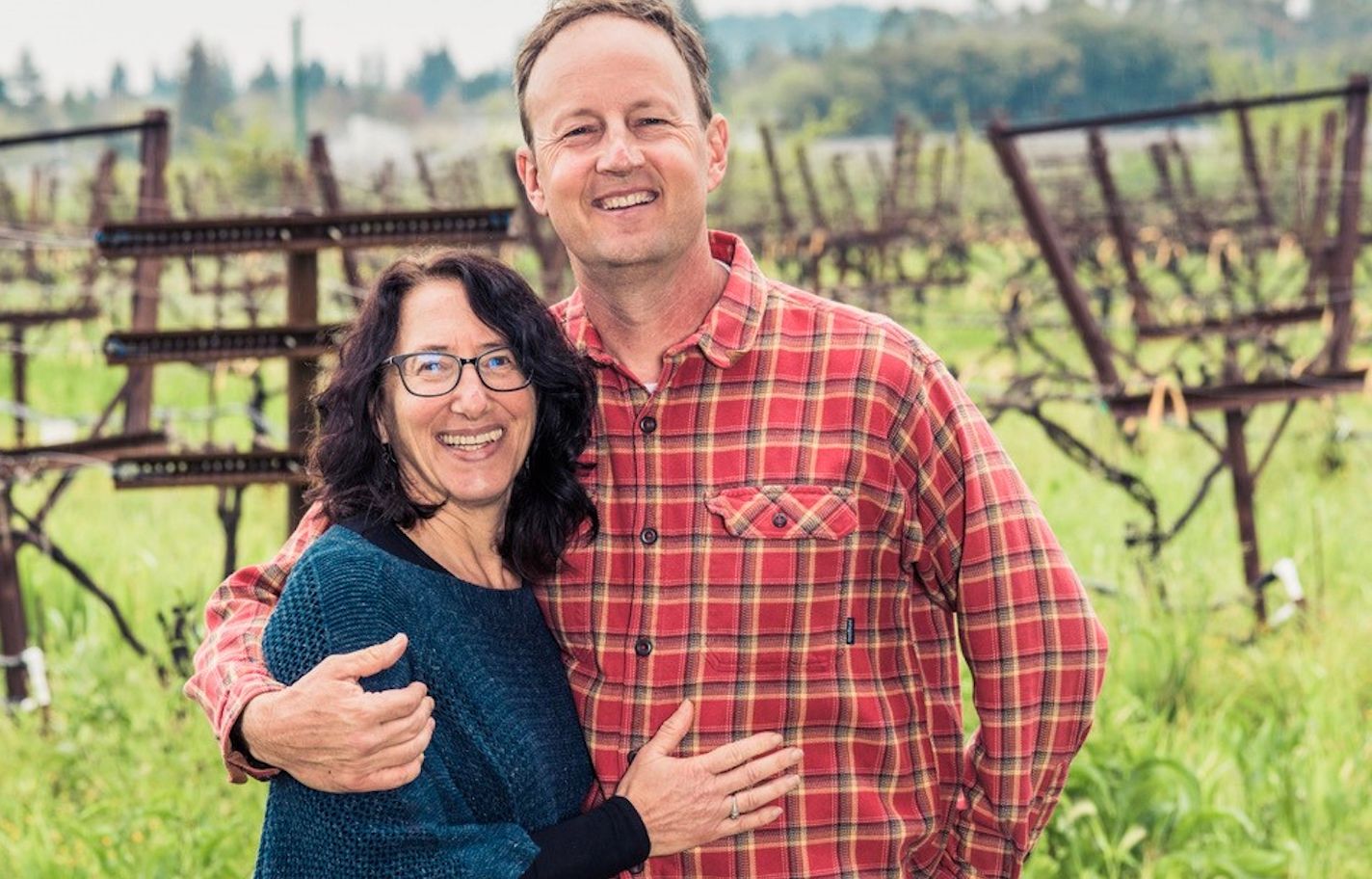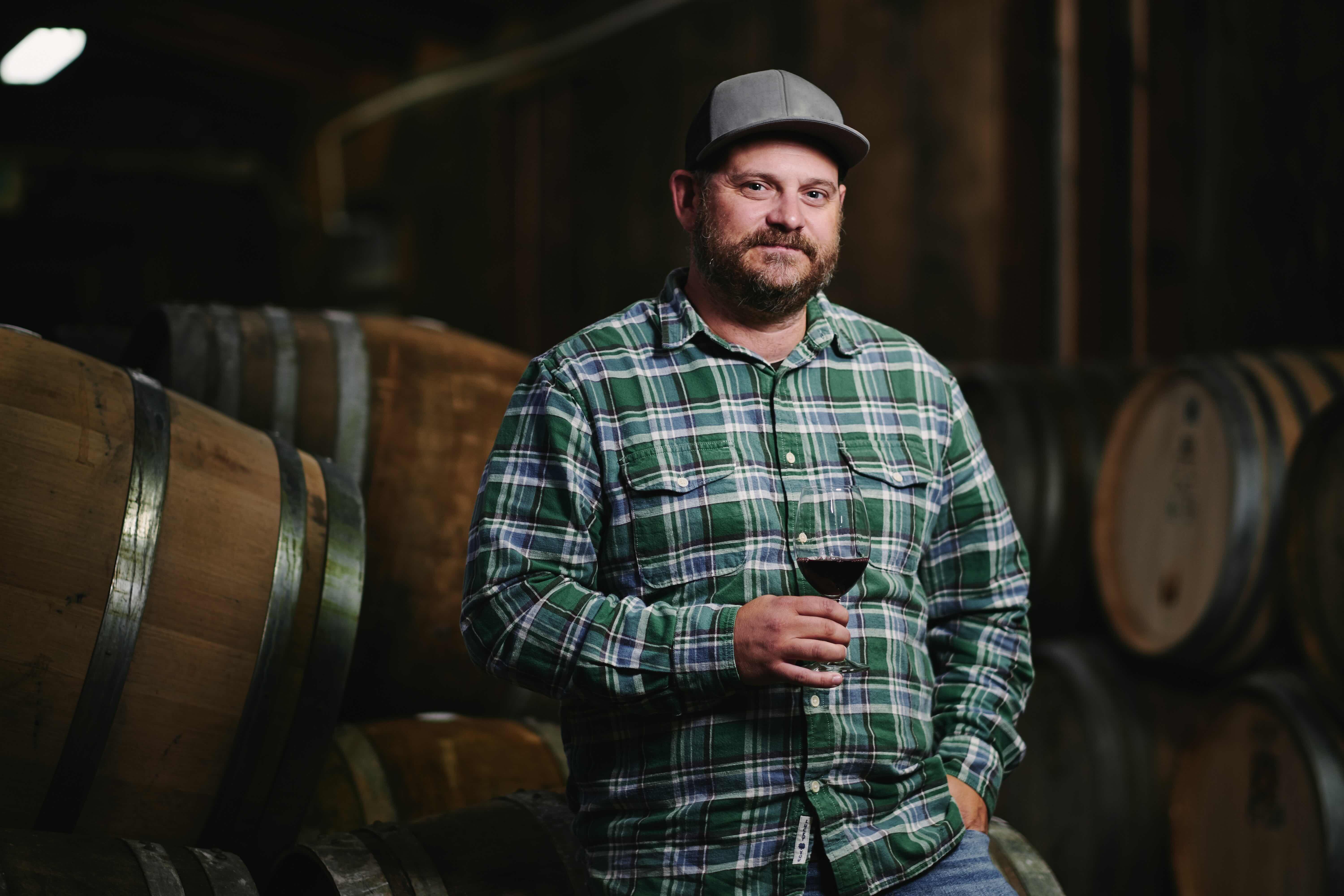Sola, the new high-end, Californian Michelin restaurant in London’s Soho was the ideal venue for Nekter Wines to showcase the new wave Californian wines from Steve and Jill Matthiasson.
Look around the world and there are growing communities of what could be dubbed “new wave” winemakers that all share the same vision to make as low intervention wines that they can that are true expressions of the soils and the place where they come from. Winemakers that are looking to rip up the rules that went before and make wines that many traditional wine producing areas simply were not making before.
California very much fits that description. In fact, such has been the impact of this way of making wine that it is a bit of a stretch to still call them a “new wave” of winemakers.
Either way Steve and Jill Steve Matthiasson are at the heart of what is going in California to push the boundaries and make wines they believe are a truer expression of what has come before.
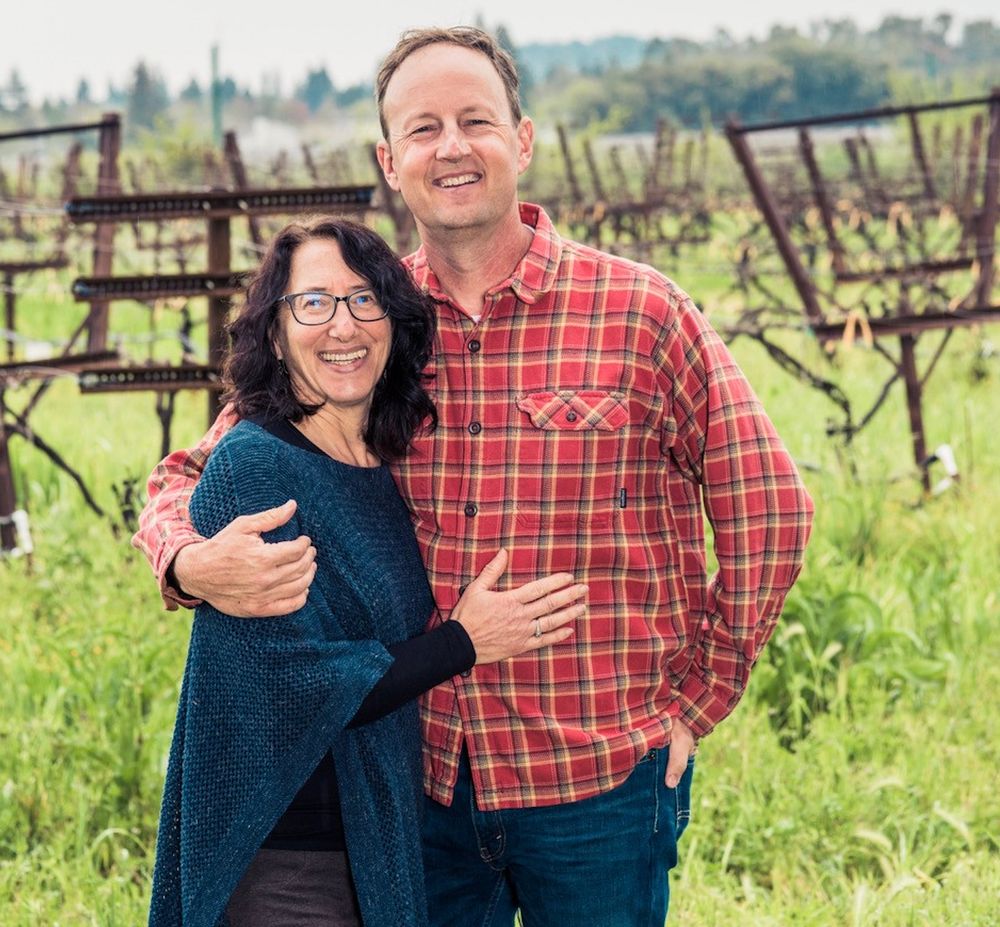
Pursuing balance: Jill and Steve Matthiasson
“There is a family of new wave winemakers all over California,” says Steve Matthiasson to a room of top sommeliers and merchants in London. “We are all looking to break away from what we believe has become a homogenised style. It’s all about trying to make wine that is all about the fruit. Wines that have balance, freshness and acidity.”
Simple as that really. But it is very hard to achieve in what can be difficult growing conditions that vary so much from AVA to AVA, and from one sub region to the next.
Matthiasson says his wine principles don’t much differ from how he lives the rest of his life, including the food he buys and wants to cook with. He wants to use the best quality, fresh ingredients in everything he does. But with the new style of low intervention wines he believes winemakers are now making wine that are perfect to go with Californian-style cuisine.
That should always be the starting point, he adds.
Sustainable values
Before they even thought about making wine, Jill and Steve Matthiasson were farmers and had spent many years working in sustainable agriculture and were part of the early local food movements. Those were the “farm to table” values, they say, that took them into wine back in 2003.
In fact, all the so called new wave of winemakers are doing, he says, is grabbing back the identity of Californian wine from the Robert Parker years, where the power of his and Wine Enthusiast’s scores were what dictated how winemaking became in the state.
He says producers have now “stopped chasing points” and gone back to making wines that they should have been doing all along. Where balance is so much more important than big, bold oak expressions. Before Parker came along the average alcohol levels in Californian wine were around 12-13% – that is where we need to get back to, he says.
“Making a rich, high alcohol wine is not the normal way to make wine in the Napa Valley.”
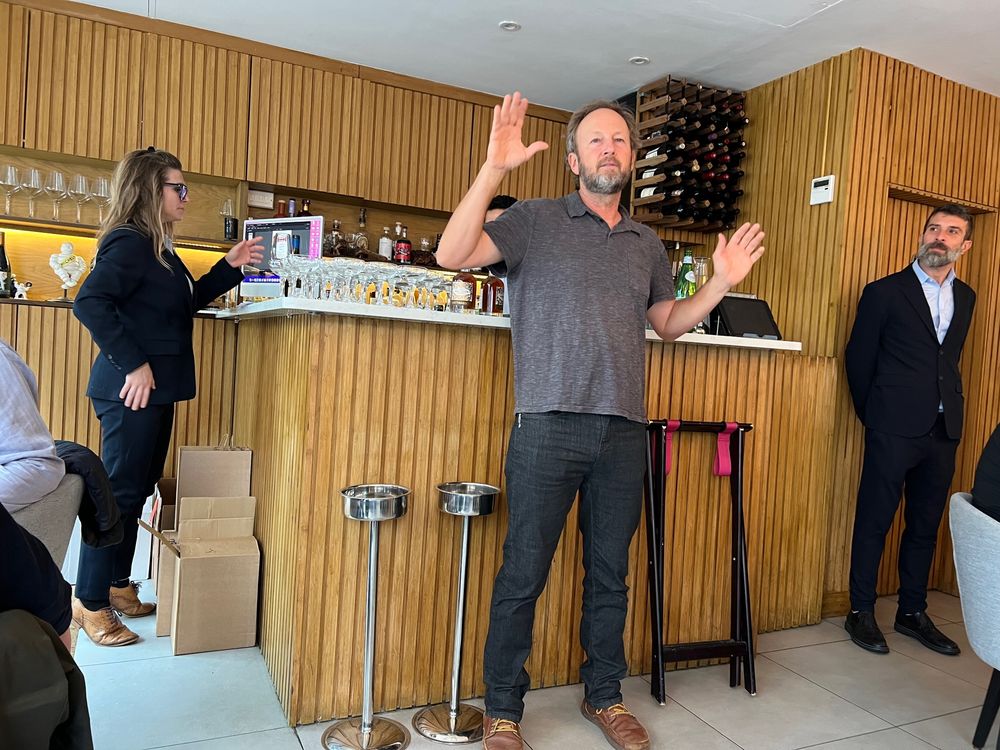
Steve Matthiasson talking to leading sommeliers at his lunch with Nekter Wines at Sola in Soho at the end of last year
Instead the Matthiasons, and like-minded Californian winemakers are “pursuing balance” in the wines they make. Only by putting balance at the forefront of everything you do can you truly reflect the terroir where your vines are planted, says Matthiasson.
He believes the best way to “pursue balance” is to farm organically, or even biodynamically. But admits he had to be shown the way by those who had gone before him to really understand just what a difference farming organically makes. “It’s how you understand how farming really works,” he says. “We started to study viticulture and fall in love with vineyards and what they could do.”
He says it was also through the work that Jill Matthiasson was doing with farmers to show them the most sustainable way to produce fruit that had a knock-on influence to how they approached winemaking. “It is very much about peer to peer learning,” he says.
He had also in the late 1990s had the opportunity to work in Lodi on helping to write its breakthrough sustainability handbook that has done so much to influence and guide the rest of Californian winemaking. “That was a huge education for me and helped me really understand Californian winemaking.”
Going it alone
It was on the back of his work in Lodi that Matthiasson started to work with producers on how to manage their vineyards and look at new ways to handle their fruit. It was after that he and Jill made the move to Napa and decided to make wine for themselves.
From day one they went into wine believing in “the old maxim that wine is made in the vineyard”.“We consider ourselves farmers first. We carefully tailor organic viticultural practices to each vineyard. This is how we harvest healthy and fully ripe fruit with balanced levels of alcohol and acidity. We do our best to protect and enhance the natural environment in the process,” he explains.
He says he can’t believe they are about to start their 20th harvest in 2023 when two decades ago “they had no idea about to how really make wine, trade it and market it”.
“We did not have a clue about Parker points at the time. We made wine we liked and went with the food we grew in our garden.”
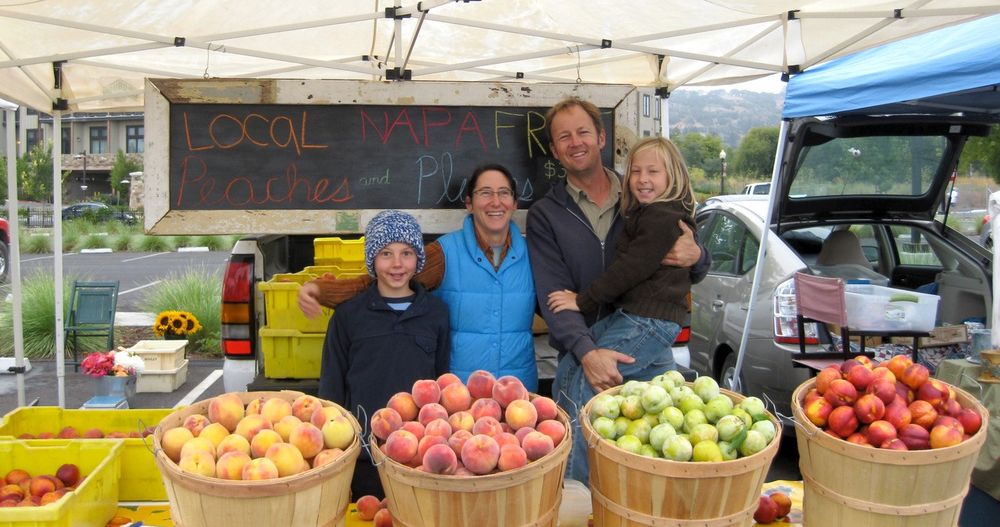
The Matthiasson family
Their approach was also not immediately met with open arms. “When we first started to try and sell our wines in 2006 we had a huge bucket of cold water thrown over us. We were making wines that were not in the ‘points’ style, wines that had no oak treatment.”
Building a community
“But we kept plugging away and started to join forces with our like-minded winemakers – the likes of Jim Clenenden and Rajat Parr. Meeting those people across California made such a big difference to us. We sort of all banded together to create a new space for Californian wine.”
He urges anyone interested in really getting to know and understand just what was happening in those mid to late 200s to read Jon Bonné’s book The New California Wine (2013) which is billed as being “the untold story of the California wine industry” featuring “the young, innovative producers who are rewriting the rules of contemporary winemaking” and “their quest to express the uniqueness of California terroir; and the continuing battle to move the state away from the overly technocratic, reactionary practices of its recent past”.
“It is still really relevant today,” adds Matthiasson. “It really captures what is going on.”
A movement that is still growing, adapting and learning, he stresses.
The Matthiassons, for example, have a wide number of varieties on their own farm, but now have contracts and relationships with a network of up to 11 growers, in Napa and Sonoma, that can provide them with extra fruit to make different wines. They have worked with all their growers to make sure they are certified organic or working towards it.
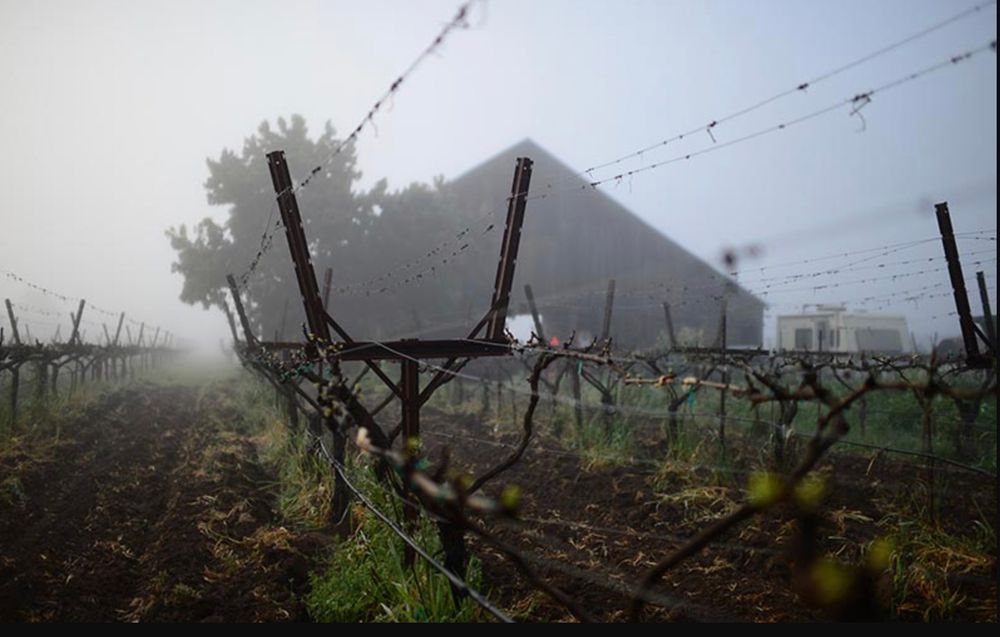
The Matthiasson vineyard at their in the Oak Knoll area of Napa where they have planted a number of different grape varieties including Refosco, Cabernet Franc, Ribolla gialla, Merlot, Tocai Friulano, Petit Verdot, and Schioppettino.
In 2017 they took the next step and bought their own winery and now own three vineyards in Napa. On its own farm in West Oak Knoll it has planted Refosco, Cabernet Franc, Ribolla Gialla, Merlot, Tocai Friulano, Petit Verdot, and Schioppettino that all work well on the alluvium soils that are close to the nearby Dry Creek.
All together they are now farming some 55 acres of vineyards and have contracts in place to supply grapes to other wineries. “It’s mind blowing how it has all gone over the last 20 years,” he says with their wines now available in 25 countries worldwide and 45 states in the US.
Finding a Shared Philosophy with Nekter
Jonothan Davey founded Nekter in 2016, importing minimal intervention wines from the New World with a big focus on California.Steve and Jill Matthiason were working with another more established UK importer at the time, but as Nekter’s portfolio grew so the two companies came to see the benefits of working together.A portfolio dedicated to the same philosophy of balance as their own wines became too much to resist, and Matthiasson formally switched to using Nekter as its sole UK importer in 2020.
“It is great to see what Steve and Jill are doing to fight the good fight for California as a whole. They are just a truly inspiring couple and I feel privileged to know them let alone work with them,”says Davey at the recent Matthiasson lunch and tasting. “They are not just big champions of the New California, but they are all about building long term relationships that matter. That’s been such a key to their success.”
It is also what Nekter Wines has looked to celebrate and provide a platform for in in the few years it has been going. “We really honed in on modern California and have spent the last few years assembling a number of cutting edge wines from the new California. It’s been pretty cool to see how well they are now doing in the UK market,” explains Davey.
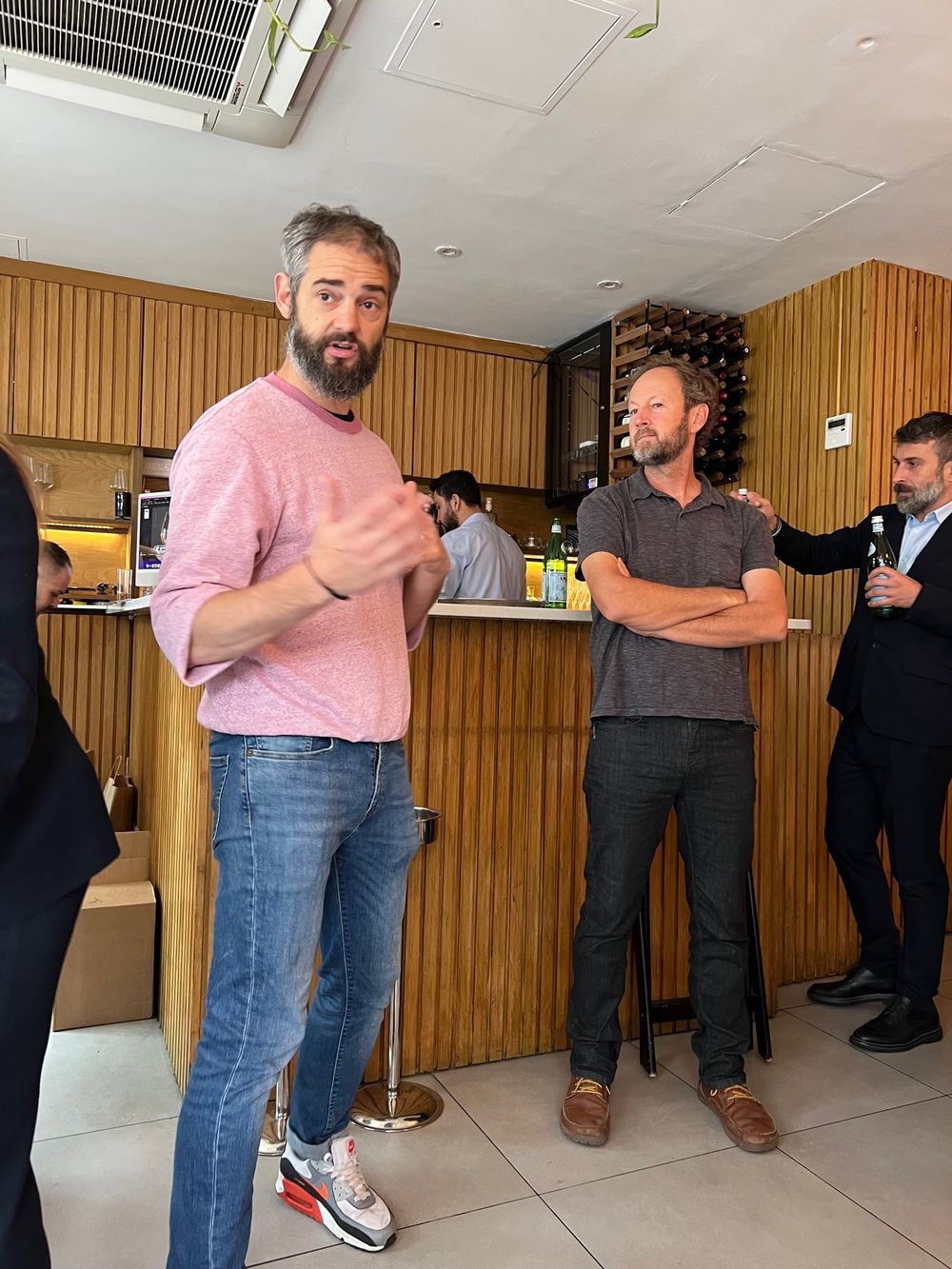
Jonathan Davey of Nekter Wines with Steve Matthiasson at the Sola lunch
As well as Matthiasson, Nekter also imports and works with: Ashes & Diamonds; Big Basin; Benevolent Neglect; Calder Wine Company; Convexity; Donkey & Goat; Ferdinand Wines; Field Recordings; Keep Wines and Maître de Chai.Two other more established brands which were already in the UK have followed the Matthiasson’s suit and joined Nekter recently: Ian Brand with his P’tit Paysan wines and Kenny Likitprakong in Santa Rosa who runs Hobo Wine Company which also produces the Camp wines.Nekter also represents five wineries in South Africa and six from Australia.
“There are also so many new wave winemakers who are just getting started in California,” adds Matthiasson. “There are no more cult Cabernet producers, but there is a whole lot of other exciting stuff going on which is putting the focus back on the local community and promoting sustainable farming.”
Take an average weekend in Napa and there are a whole host of events going on that are taking place to help people learn the practical skills needed to be a start-up sustainable winemaker, says Matthiasson. “How to plant hedgerows and manage the land without pesticides and work with cover crops and how to create you own biodiversity. There are a lot of initiatives to help the local community and we want to use our own platform to get the industry to do better around sustainability, organics and regenerative farming.”
Pioneering cuisine
In turn, Steve Matthiasson says he is so pleased to have the chance to show its full range of wines in the UK with Nekter, particularly in restaurants like Sola which has a wine list that includes many of his peers in the Californian new wave scene to match the exquisite, Michelin level high-end, Californian cuisine.
Sola was a particularly suitable venue for the Matthhiassan tasting as it is not just in wine that there has been a rejection of the big, bold ways of doing things in California. The restaurant scene has also gone back to its “farm to table” values and now the best chefs and venues are judged not just on the quality and precision of their dishes, but the relationships they have with local farmers and their suppliers.
A vision and an approach that Sola, and its super talented chef, Victor Garvey, has taken to extraordinary levels with its award-winning and breakthrough, imaginative dishes.
Dishes that Matthiasson looked to live up to with some of his eclectic range of wines. Including his Ancient White Wine Number 1 that is his homage to what a wine that was made 2000 years ago might have tasted like at the time. A wine that even includes some pine sap taken from Aleppo Pine trees in his mum’s own back yard to replicate the pine resin that winemakers used to add as a preservative – to make a Retsina style. His Ancient White Wine Number 1 comes from Greco di Tufo grapes from Rutherford.
The fact there is a restaurant in the heart of Soho that is celebrating not only the best of Californian cuisine, but has a wine list featuring Matthiasson and the majority of his new wave winemaking peers shows how far California has come in the last 10 years.
Perhaps the last word should go to US wine writer, Eric Asimov, who, typically, has captured what the Matthiasson’s are all about with this line: “Matthiasson wines bear an agricultural stamp, as fresh, lively and alive as the best produce from a farmers’ market.”
Mattiasson wines available from Nekter Wines
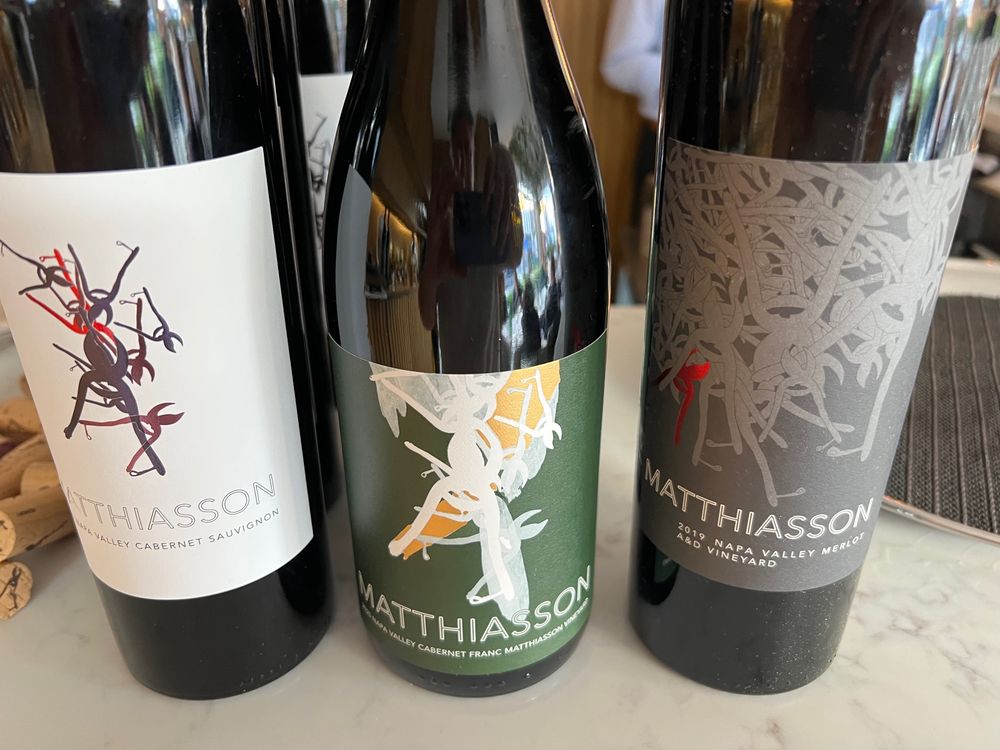
Some of the wines in the Matthiasson range that are now imported in the UK with Nekter Wines
Matthiasson Ancient WhiteDPD £28.36
Matthiasson Ribolla Gialla DPD TBD
Matthiasson Linda Vista Chardonnay 2020 DPD £21.13
Matthiasson Cabernet Franc 2020 DPD £40.56
Matthiasson Ashes & Diamonds Merlot 2019.DPD £56.47
Matthiasson Cabernet Sauvignon 2019 DPD £44.57
Matthiasson Vermouth No5 375ml. DPD £28.90
- If you would like to know more about Matthiasson Wines go to its website here.
- If you would like to taste any, or other wines in Nekter’s Californian portfolio then contact Jonothan Davey on jon@nekterwines.com or at the website here.
